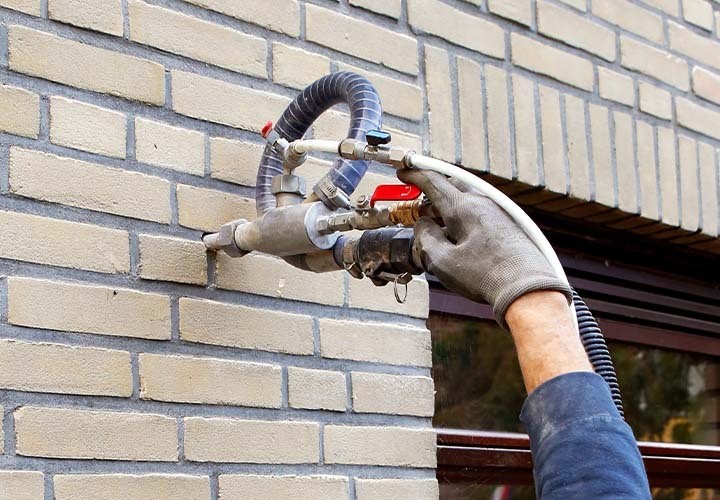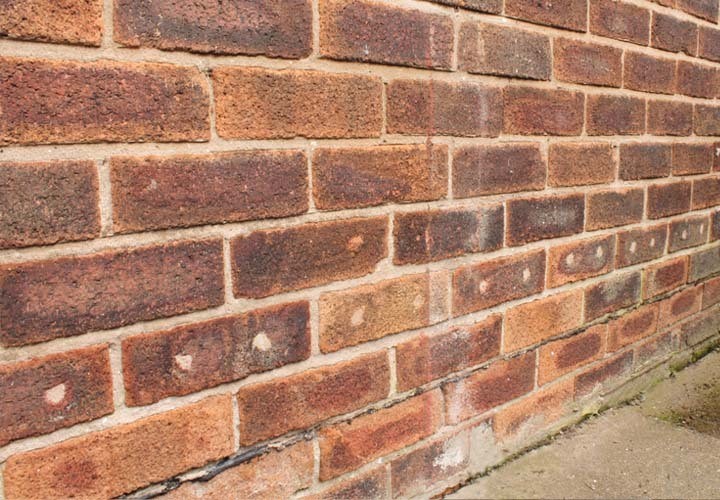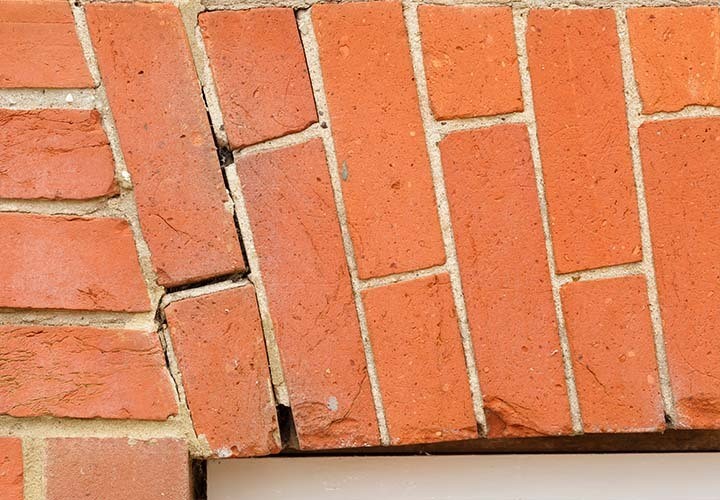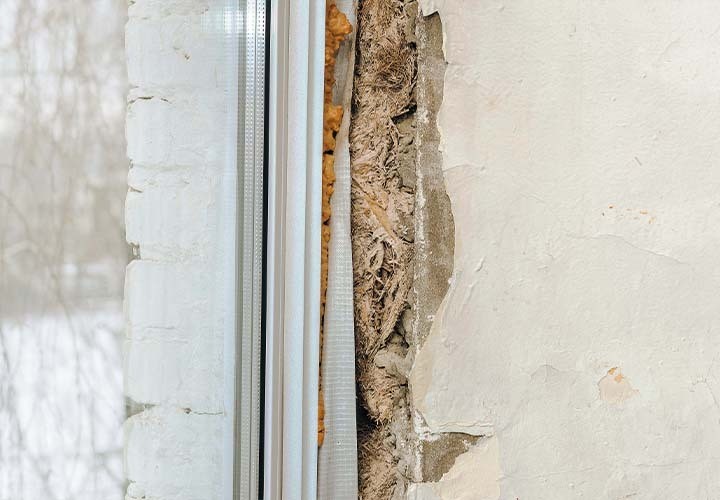Resources & Information
A Comprehensive Guide to Cavity Wall Insulation

In today's world of rising energy costs and a growing focus on sustainability, keeping our homes warm and energy-efficient has become more important than ever. Cavity wall insulation is a well-established method for achieving this goal as part of your home insulation. Still, with so much information (and sometimes misinformation) available, it's natural to have questions.
This guide addresses those questions comprehensively, providing you with the knowledge you need to decide if cavity wall insulation is the right solution for your home.
Is Cavity Wall Insulation Still Recommended?
Absolutely! Cavity wall insulation remains a highly recommended energy-saving measure for home insulation with suitable wall cavities. Here's why:
- Reduced Heat Loss: Walls are a major source of heat loss in homes, accounting for roughly a third of escaping heat. Full fill cavity wall insulation acts as a barrier, trapping heat within your living space and reducing reliance on central heating systems.
- Lower Energy Bills: By keeping your home warmer for longer, cavity wall insulation can lead to significant savings on your energy bills. Studies suggest reductions of up to 45% are achievable, depending on factors like property size and heating habits.
- Reduced Environmental Impact: Lower energy consumption translates to a smaller carbon footprint. By using less energy for heating, you contribute to a more sustainable future.
- Increased Property Value: Homes known to be energy-efficient tend to attract higher valuations in the property market.
At Ignite Property Group, we offer a free cavity wall survey before installation. This ensures your property is suitable for the insulation and identifies any potential issues that might need addressing beforehand, and if cavity wall insulation is needed, we can arrange wall insulation removal of existing redundant products.
What are the Disadvantages of Cavity Wall Insulation?
While cavity wall insulation offers numerous benefits for home insulation, it's essential to be aware of potential drawbacks:
- Limited Suitability: Not all homes are suitable for cavity wall insulation. Buildings with narrow cavities (less than 50mm), those with existing insulation, or those constructed with specific materials like solid walls or timber frames might not be ideal candidates.
- Potential for Damp Issues: Improper installation or pre-existing damp problems in the walls can be exacerbated by cavity wall insulation. This is why a thorough inspection and professional installation are crucial.
- Disruption during Installation: The installation process involves drilling small holes in the external walls. While minimally invasive, it can cause some disruption for a short period. Ignite Property Group uses a clean and efficient installation process, minimising any mess or inconvenience, including cavity wall insulation removal.
Ignite Property Group offers free, no-obligation surveys to assess your property's suitability for cavity wall insulation and provide transparent cost estimates.


Is There a Government Grant for Cavity Wall Insulation?
In some regions, government grants or financial incentives such as the Great British Insulation Scheme may be available to help with the cost of full-fill cavity wall insulation. Ignite Property Group can advise you on any current government grant schemes, and check your eligibility for savings that might apply to your property.
Why is My House So Cold Even With Cavity Wall Insulation?
If your home feels cold despite having cavity wall insulation, there could be a few reasons:
- Loft Insulation Issues: Up to a quarter of heat loss can occur through the roof. Ignite Property Group recommends checking and potentially upgrading your loft insulation to maximise your home's energy efficiency.
- Incorrect Installation: If the cavity wall insulation was not installed correctly, it might not be performing optimally. A professional inspection can determine if there are any issues. We can also discuss if cavity wall insulation removal is needed.
- Air Leaks: Air leaks around pipes, cables, or other openings in the walls can allow cold air to enter. Sealing these leaks can improve your home's insulation.
Ignite Property Group offers comprehensive home energy assessments to identify the root causes of heat loss and recommend appropriate solutions.


What Houses Should Not Have Cavity Wall Insulation?
While cavity wall insulation is a valuable energy-saving measure for many homes, it's not suitable for all properties. Here are some scenarios where it might not be recommended:
- Solid Walls: Homes with solid walls (i.e., walls made of a single material like brick or stone) do not have a cavity to insulate.
- Narrow Cavities: If the cavity between the walls is too narrow (less than 50mm), it might not be possible to install insulation effectively.
- Existing Insulation: If the cavity already contains insulation, adding more might not be beneficial and could even cause problems, in this case, you will need cavity wall insulation removal of the existing old insulation.
- Structural Issues: If there are structural problems with the walls, insulation installation could exacerbate them.
- Listed Buildings: Listed buildings often have restrictions on alterations. Cavity wall insulation might require special permissions or be prohibited entirely.
Ignite Property Group can assess your home's suitability for cavity wall insulation and provide expert advice based on its specific characteristics.
Keeping the Heat In
Cavity wall insulation remains a valuable investment in energy efficiency and comfort. By understanding the benefits, potential drawbacks, and suitability of your home, you can make an informed decision about whether it's the right choice for you. If you're considering cavity wall insulation, Ignite Property Group is here to provide expert guidance and high-quality installation services. You can book a survey today or get in touch with the team.
Remember, a well-insulated home is a warm, comfortable, and energy-efficient home.
Related
Reduce Your Energy Bills with Home Insulation
With the rising cost of living, insulating your home can pay for itself multiple times over. Now is the time to invest in cavity wall and loft insulation.
Read MoreInsulation FAQs
Find the answers to some of our most frequently asked questions about insulation and how our services at Ignite Property Group can help elevate your home's energy efficiency.
Read More